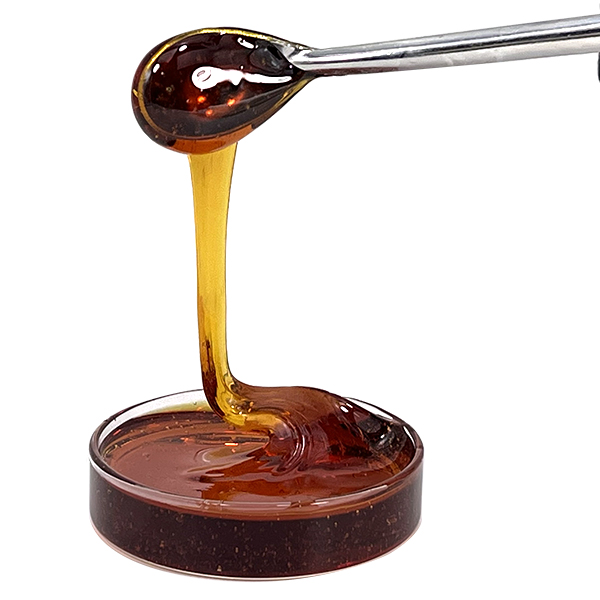We were lucky to catch up with Jeff Applegate recently and have shared our conversation below.
Jeff, thanks for taking the time to share your stories with us today Let’s start big picture – what are some of biggest trends you are seeing in your industry?
I see brokers infiltrating the industry, creating confusion, stagnating progress, obscuring transparency and preventing trusting relationships between industry participants. The promise of the 2018 Green Rush brought an influx of opportunistic brokers into the hemp industry, often adopting strategies from the cannabis sector. Brokers engaged directly with farmers, equipment manufacturers, extractors, refiners, product formulators and contract manufacturers at every level. But this trend fostered ambiguity, misrepresented market demand and resulted in short-lived relationships fraught with mistrust.
We experienced this firsthand when we were approached by a “direct to the farmer” entity claiming to possess a network of domestic farm partners to offer refiners like Red Mesa direct access to farmers of their choice. At the time, increasing biomass shortages made the relationship attractive as we aimed to expand and fortify our supply chain across specific geographic regions to mitigate risks like weather and pests. We were introduced to a farmer reportedly producing over a million pounds of hemp biomass that would be available within weeks, and who was also interested in long-term contracts through 2025. As part of our supplier approval vetting process, we scheduled a comprehensive evaluative site visit for the following week.
We anticipated that this entity would reveal contact details and coordinate our visit to the farm, but that never materialized. Instead, a Mutual Non-Disclosure Agreement (MNDA) with a non-circumvention clause was emailed hours before travel, forbidding Red Mesa from conducting business directly with the farmer. What was positioned as an introduction instead morphed into a contract with a broker’s provision to indefinitely collect a 15% commission on all transactions between the farmer and our company.
While they claimed the farmer agreed to the terms, we believed both parties were misled with the entity’s true intentions withheld until the final hour. We refused to sign and forfeited access to the biomass. Later, we learned that rather than sharing the truth that we refused to sign based on the terms, the broker falsely told the farmer that Red Mesa was no longer interested in their farm.
This trend highlights our commitment to collaborating with like-minded professionals who share our values. By building direct, transparent relationships with suppliers, we have the opportunity to create long-term partnerships that promote shared success and growth for both parties and the industry as a whole.
Lack of federal regulation continues to prevent clearly defined standards, continuity and commercialization of the hemp industry. The 2018 Farm Bill, slated for an update in 2023, remains unchanged as of early 2025, leaving the hemp industry without formal federal regulation. This gap has forced states to create their own laws—often in conflict with the existing Farm Bill—that has led to lawsuits by states, industry participants, associations and various advocacy groups. The lawsuits distract, add unnecessary costs and preoccupy entities as they try to effectively manage their businesses.
A significant shortcoming of the 2018 Farm Bill is its lack of provisions for extractors, refiners and formulators to conduct interstate commerce with Work-In-Progress (WIP) hemp materials. As licensed processors further refine hemp, the THC concentration naturally increases beyond the legal 0.3%, resulting in non-compliant WIP. While some states allow for the creation and safe passage of non-compliant WIP, others, like Utah, ban transport, restricting companies like Red Mesa from effectively trading raw materials.
For example, the importation of crude oil, our input feedstock, can contain 1% to 3.5% THC concentration, categorizing it as non-compliant. Utah forbids us from importing these raw material inputs without diluting them to 0.3% THC, a process that leaves us with only 20% crude per 55-gallon barrel. This creates tremendous inefficiency, high costs, solvent recovery hardships and environmental harm from increased transportation loads, ultimately offsetting the hemp plant’s carbon sequestration benefits.
Red Mesa hired lobbyists to advocate for changes to Utah’s restrictive WIP transport laws to address this. After a year of effort, one full legislative session and substantial investment, we succeeded in rewriting the laws to permit the transport of hemp materials with up to 20% THC between licensed processors via a hemp transport permit. While the process remains administratively complex between Red Mesa and our domestic partners, our activism has leveled the playing field and allows us to compete more effectively. Based on this experience, we realized that Red Mesa has the opportunity to enact change at the local, state or even the federal level by focusing more efforts towards regulatory reform.
From a consumption standpoint, one of the most prominent trends we are witnessing is the increased popularity of CBD in functional beverages. With Gen Z leading the charge towards lower alcohol or alcohol-free beverages, we are seeing a significant shift towards enjoying beverages with natural and functional ingredients like CBD. This trend aligns with the current focus on self-care, mental health and overall well-being. For many consumers, including Gen Z, the appeal of potential benefits like relaxation, immunity boosts, improved energy and focus outweighs the downsides of alcohol or smoking. Functional beverages are now staples in daily routines and social settings alike.
As consumers pursue new natural pathways to health and wellness, they too seek the most efficient and effective means of consumption. Nanotechnology has revolutionized CBD’s water solubility and increased the bioavailability of functional beverages for faster results, while also requiring fewer cannabinoids to be effective. This innovation supports the rapid growth of the functional beverage market, even as traditional consumption methods remain prevalent.
Brands recognize that a wider audience across generations may prefer to “feel something,” be it relaxation or otherwise, but do so without feeling the “high” associated with marijuana. In response, cannabinoid-infused beverages have flooded the market, ranging from non-psychotropic to microdoses of THC. By tapping into this healthy lifestyle trend, Red Mesa can help support industry integrity by offering premium CBD, CBG and CBN cannabinoids refined under rigorous quality standards to help build brand loyalty and trust.


As always, we appreciate you sharing your insights and we’ve got a few more questions for you, but before we get to all of that can you take a minute to introduce yourself and give our readers some of your back background and context?
My transformative experience in the medical rehabilitation industry focused on how thoughtful design, functionality and affordability can transform outcomes for occupational and physical therapy patients. Having achieved my goals over a decade in the industry, I began contemplating my next compelling mission and the role I would assume. Ironically, the answer came from our daughter’s 18-year-old Chihuahua, Pita, whom we were caring for.
We experienced firsthand the effects CBD had on Pita. The physical relief it brought her coupled with our own favorable experience with CBD prompted the passion for delivering health and wellness benefits to the greater population. My professional background, along with this personal discovery, aligned perfectly to bring to market a compelling brand that would support this endeavor.
COVID hit while developing our strategic plan, bringing global economic uncertainty and ultimately derailing our plans. Fortunately, I was given the opportunity to lead Red Mesa Science & Refining, a hemp refinery in St. George, Utah. The ability to expand health and wellness benefits globally, combined with the facility’s potential and the team’s dedication, convinced me that Red Mesa could become a dominant player in the industry. Founded on scientific principles and a commitment to quality, Red Mesa holds the central tenets I believe are essential for success in this space. We intend to be a major player in the B2B hemp-derived cannabinoid space and aim to help make cannabinoids accessible to all.
Market instability and the lack of consistent delivery of high-quality cannabinoid raw materials severely impede progress in our industry. New customers come to us daily seeking supply chain stability. Over the past few years, we’ve observed price-sensitive formulators switching suppliers for short-term gains. This translates to unpredictable customer demand and production forecasts that negatively impact inventory availability for repeat customers.
To protect our loyal customers, we adopted a go-to-market strategy with an allocation program to reserve our inventories for our loyal customers. We can now ensure that they have the required inventory when they need it. Since adopting this strategy nearly a year ago, we have had tremendous success with customers leaning in to be assured that they will receive Red Mesa’s premium ingredients. By directing our outputs to those loyal to Red Mesa first, we have reduced our customer’s supply chain disruptions, brought predictability to our operations and significantly improved customer satisfaction.
At Red Mesa, we have consistently set high standards to lead the market and help establish the benchmark for the industry. By prioritizing professionalism, science, quality and transparency, we’ve built a strong reputation while staying true to our core values, regardless of industry challenges.
Our decision to design, specify, produce and sell only the products we manufacture ensures control over outcomes and distinguishes our brand. We have surpassed industry expectations with numerous certifications and conformances extending well beyond regulatory requirements. Furthermore, providing third-party ISO 17025 accredited third-party COAs validates our stringent requirements and instils trust in the quality and safety of our cannabinoids.


Any advice for managing a team?
Leading a team in a new emerging industry during the pandemic brought many unforeseen challenges that required grit and resolve to continue to believe in our founding principles. Immersing myself in daily operations was central to identifying problems and guiding my team to prioritize activities to continuously find effective solutions.
Working shoulder to shoulder with our staff on the manufacturing floor is essential to building a united team and demonstrating a shared commitment. Listening with empathy, discussing complex situations, having an open-door policy and coaching strategic problem solving are essential to ensure open communication and proactive collaboration.
While morale naturally fluctuates with challenges, achieving high morale—especially among our leadership team—arises from shared problem solving victories. Through these experiences, we create a series of wins that strengthen our bonds to ultimately function as a team capable of facing adversity.


How’d you build such a strong reputation within your market?
Staying true to my beliefs has helped build my reputation in the industry. Fortunately, my beliefs are closely aligned with the company’s core values and a rare synergy. This shared philosophy permits me to be decisive—as is my nature—and confidently lead my team.
I lead with a consensus-driven management style to foster collaboration and unity. This approach originates from many years of playing team sports where we were only as good as our weakest link. Developing an egalitarian environment encourages a team-player mentality, and creates predictability when working together. In this manner, everyone can naturally work toward the company’s mission and shared goals, whether individually or as a team.
Contact Info:
- Website: https://www.redmesascience.com/
- Instagram: @redmesascience
- Facebook: https://www.facebook.com/RedMesaScience/
- Linkedin: https://www.linkedin.com/company/red-mesa-science-refining-llc/
- Youtube: https://www.youtube.com/channel/UCRuKji2JHWHGfU_PYs_ExQQ/videos
- Other: Blog: https://www.redmesascience.com/blog-news/


Image Credits
Red Mesa Science & Refining


